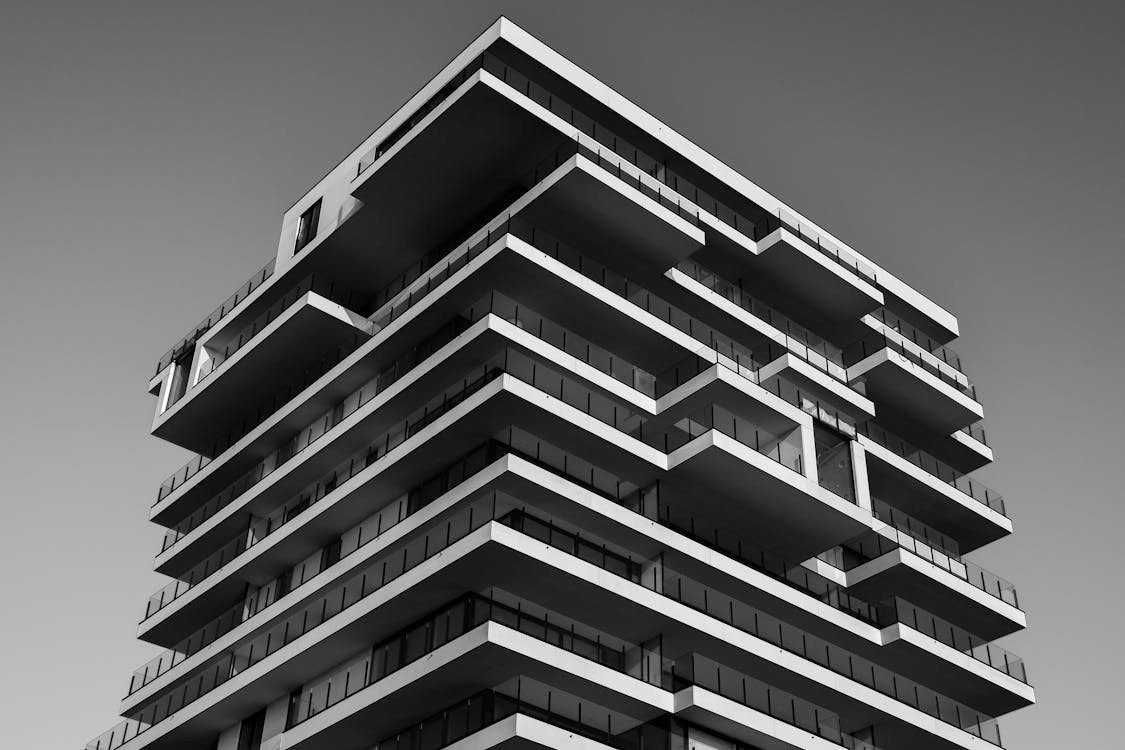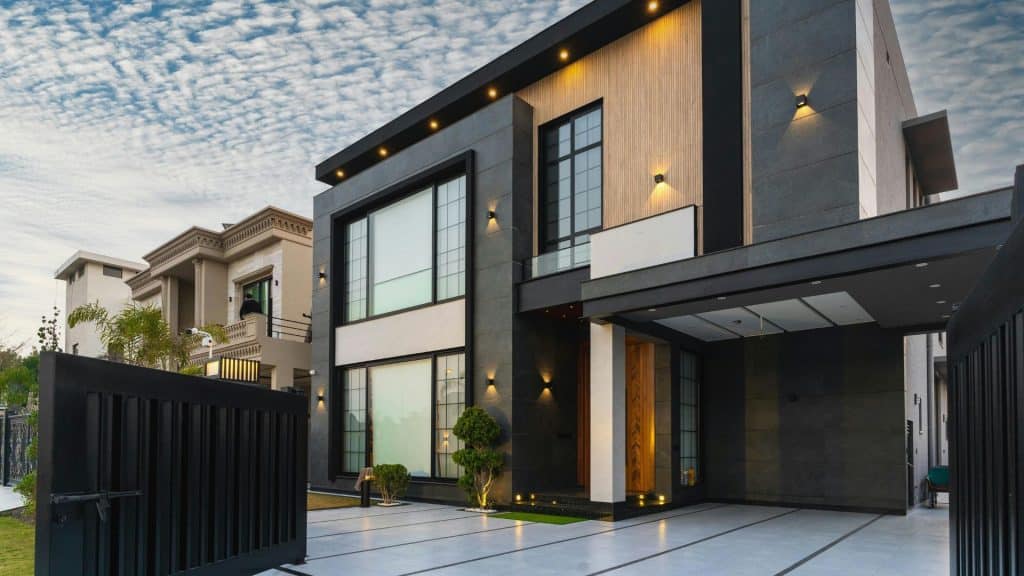Luxury property development projects bring unique risks and challenges when it comes to protecting the safety of workers and clients. High-end builds often involve complex designs, intricate detailing, and speciality materials that require extra precautions during construction. Additionally, luxury buyers expect white glove treatment and seamless customer service throughout the process. This places greater responsibility on developers to prevent issues that could tarnish their brand image. By taking proactive measures in areas like site safety, customer relations, and workforce policies, luxury developers can effectively safeguard their personnel and patrons.

Site Safety
Ensuring site safety should be the top priority when undertaking any build, particularly for high-end projects using complicated construction methods. Before commencing work, developers should issue a notice letter to inform stakeholders, including nearby residents and local authorities, about construction schedules, potential disruptions, and the safety precautions being implemented. This ensures transparency and helps address concerns regarding noise, dust, or site access.
All workers should receive safety training and be provided with the necessary protective equipment before starting work. Common hazards like falls, electric shocks, and muscle strains can be avoided with proper precautions. Developers must also provide ongoing supervision to monitor compliance with safety rules. Daily inspections should check for risks like unsecured scaffolding, trip hazards from debris, and workers not using their PPE.
Thoughtful site planning is also key. Sufficient lighting, ventilation, and egress routes must be established. Noise and dust should be controlled where possible. Secure barriers must surround the worksite to prevent unauthorised access, falling objects, and contamination of adjacent areas.
Customer Relations
For luxury developments, customer service is integral throughout the process, from initial purchase to final walkthroughs. Clients expect dedicated support and prompt issue resolution. Developers must train all client-facing staff on professional communication and transparency.
Set clear policies for providing construction updates to buyers. Be proactive with notifications if timelines shift or design changes occur. Define standards for responding to queries and complaints, ideally within 24 hours.
During pre-arranged site visits, ensure safe access and viewing areas for clients. Require PPE like hard hats and high-visibility vests for all visitors. Have staff on hand to guide guests, monitor for risks, and answer questions.
Outline formal protocols for identifying and avoiding defects before buyer handover. Conduct thorough quality inspections at each build stage and prioritise repairs. Be upfront about any outstanding fixes needed post-occupancy and provide a timeline.
Workforce Policies
Developers bear a duty of care for the workers building their projects. All staff, including subcontractors, should be properly trained, licensed, and insured. Personnel policies and labour contracts must adhere to UK laws and regulations.
Screen crew members before hiring them and conduct background checks as warranted. Ensure workers have the required qualifications and skills for their assigned tasks.
Promote workforce safety through incentives and competition between contractors. For instance, award bonuses to teams achieving high safety ratings each month.
Provide adequate facilities like sanitary washrooms, clean drinking water, and break areas on-site. Monitor hours worked to avoid fatigue, which can increase injury risks.
Promote a collaborative rather than blame-based culture. Encourage workers to report issues or hazards without fear of reprisal. Review policies regularly and seek feedback to drive continuous improvement.
Site Security
Maintaining robust security is vital to avoid theft, vandalism, and unauthorised access to luxury development sites. Install perimeter fencing and gates with keypad or code entry access. Provide security personnel to monitor the site after hours. Require all workers to wear ID badges on-site and check in/out at entry gates.
Install security cameras to cover the full grounds and entrances. Motion sensor lights can also deter trespassers at night. Keep equipment and materials locked up when not in use. Conduct regular inventory checks to identify any missing items quickly.
Also, ensure subcontractors provide lists of all staff that will be on-site and do not allow substitutions without approval. Change keypad codes and security badges if any personnel leave the project.
Fire Protection
Fires pose a severe risk on construction sites with flammable materials and ignition sources. Developers must provide fire extinguishers rated for typical hazards in multiple visible locations. Establish emergency fire exits and evacuation routes with signage. Keep egress paths clear of obstructions at all times.
Ban smoking and open flames within the work site. Dispose of combustible waste regularly and ensure dust buildup does not occur. Inspect electrical systems and equipment to prevent shorts or overheating. Shut off power fully when equipment is not in use.
Train all personnel on fire risks, prevention, and emergency response, including the use of extinguishers and hose lines. Conduct practice drills to ensure readiness. Report all fires, even if extinguished, to emergency services to get an incident report.
Neighbourhood Management
Luxury developments in residential areas require coordination with neighbours to minimise disruptions. Provide advance notice of construction timelines, including especially noisy work. Try to limit loud activities to weekday daytime hours. Offer to clean nearby homes and cars of dust if necessary.
Erect solid barriers and scaffolding wraps to contain noise, debris, and dust. Use noise and vibration-damping techniques wherever possible. Avoid stockpiling materials near shared property lines. Designate offsite parking areas for construction vehicles to avoid blockages.
Keep neighbours informed of progress through regular updates. Provide a direct contact for raising any concerns, which should be addressed promptly. Small gestures like gift cards also help appease neighbours dealing with the inconvenience.
Project Handover
The closing and handover process is the final chance to make a positive impression on luxury buyers. Schedule pre-handover inspections to identify any lingering defects or improvements needed. Complete repairs and deep cleaning prior to occupancy.
Prepare comprehensive documentation like warranties, operating manuals, and emergency contacts. Offer hands-on walkthroughs to demonstrate systems and features. Provide 24/7 post-handover support in case issues arise.
Follow up with buyers at regular intervals, such as 1 week, 1 month, and 6 months post-move-in. Solicit honest feedback on their experience with the purchase, construction, and handover process. This customer loyalty focus will enhance the brand reputation and generate referrals.
Luxury property development necessitates heightened protection for both the work crews and discerning clients involved. By targeting areas like site hazards, customer service, and workforce policies, UK developers can uphold high safety standards across their projects. This diligence helps create trust in the brand and minimises liability risks.





















